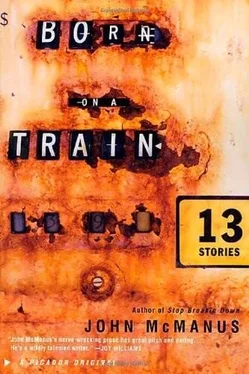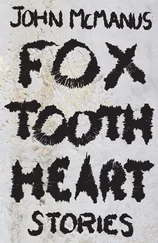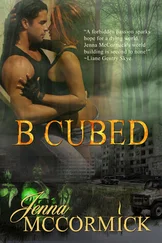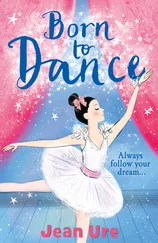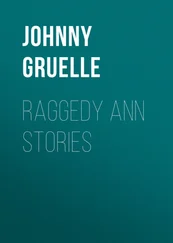Sina sorted through the dresses and held one up beside him. This is my size, he said. In the sunlight it was deep blue, studded with ivory rosebuds. The women watched us from within their wrinkles as Sina turned to me and said, Do you want to take me to America?
That’s impossible, I said.
He pressed the fabric to his body. I think this might fit me perfectly, he said softly to the women as they stared. I watched the sea. Wind blew a silk scarf off the top of the clothes pile, and I replaced it on the table. The dress cost two dollars.
Are you ready? I said to Sina, but he didn’t answer me.
Do you have any lipstick? he said to the woman who had taken his money.
She nodded.
Can you sell me some?
You’ll need to go to the chemist for that.
Give me your wallet again, Sina said to me. He took a twenty-dollar note from it and listed what he wanted: lipstick, eye shadow, fingernail polish. Rouge would be good.
We were on the bleached East Cape, unpopulated, fifty miles from any city. He found a slender pair of women’s shoes beneath the dresses and squeezed his right foot into one and asked, How much are these?
Those were my daughter’s, said the woman.
What size does she wear? asked Sina.
She drowned in them.
The woman’s empty smile never changed. Sina held one shoe to the sun: it bore no sign of water. He knew just how to touch the woman’s shoulder when he asked, How old was she?
Forty-two.
I’ll give you whatever you want for them, Sina said.
You really want this junk?
If you’re selling it.
The woman went inside. Her friend said nothing as we watched the clouds and waited, gazing beyond the trees to the calm ocean. When the woman limped back outside, the sunlight caught her jewelry. Her white shirt bore five Maori words. This was hers, she said, presenting a box inlaid with cowrie shells to Sina.
I can’t take that from you.
It’ll only rot, she said.
A dozen different kinds of makeup filled her reliquary. Her friend smiled straight through me like I wasn’t there. Can makeup rot? I wondered. Sina found a white bracelet on the table to match his dress’s flowers. He fitted it onto his left wrist for my approval. We’re headed up to the cape, Sina told the women. We’re going to be the first people in the world to see the sun.
They stared back at us. Suddenly I couldn’t tell if they were smiling anymore, or if they’d smiled even once since we met them.
You can come with us, said Sina. We’re hitching to the sunrise. The older, shorter woman glanced at her friend, who held a pebble and stared at the ground. We’ve got lots of food, Sina said, which wasn’t true.
It was hard to tell how old they were. Their wrinkles said they’d smoked for many years. The cape is where my daughter drowned, the woman said. She smiled apologetically, like it was her fault, and she turned her head back down, submissive to the earth, humming and rearranging trinkets on her table. Sod was rising between her toes. Later at the beach Sina cried over what he’d mentioned, and the empty dresses, the box of moments she had known, her face against the sun. He gave her twenty dollars, which was all the cash we had. My mouth was dry. Just from breathing the town’s air I had swallowed enough salt water to sink ships.
We walked past several houses, a church, a school, weedy yards of lemon trees. Dark-skinned children giggled on a tilted porch; cars rusted along the road. I was happy for the houses crumbling in the sun; I wanted to meet all the town’s old women and stroke their hair like it was Sina’s, let the sunlight dance upon their tangles. Sina stashed his purchases beneath a fern and we took our clothes off on the empty beach and swam naked. Sina splashed my face with water. We must have floated there for hours. When the Maori boys got home from school mid-afternoon, they ran to the beach and played rugby across a tidal pool. Clouds moved like sambas across the mountain shadows. A boy dove into a dune and spoke in Polynesian as he grabbed the ball, his voice like a xylophone, his eyes drenched sixteen years by light. For a moment everyone looked like that.
The boy ran toward the game. He never caught the ball but only watched his friends and brothers. Sand fell from their chests. Starfish, Sina whispered, and when I blinked the sky turned black. Palm trees blew like jungle warriors, boys kicking across the beach. Do you really want to go to the cape? I asked him. It was at least twenty miles out of the way. Across the dunes the rusted town’s marae shone with the iridescent eyes of paua shells.
We’ve got to do it now, he said as sunlight shone on trees. For the drowned girl.
If we don’t get to Auckland soon, they’ll freeze my bank account.
But I’ve got a new plan, he said as we came ashore and dressed. The boys didn’t seem to notice us.
What’s your plan?
To go to the cape.
So we hitched out to the lighthouse, two separate rides. A hops farmer from the south island picked us up at the town’s edge and took us north to Hicks Bay, then at sunset some kids from the backpackers hostel picked us up and drove us to the road’s end half an hour out the gravel. They were German; they were camping on the shore. We waved off and hiked uptrail to a cliffside meadow. It was dark now. I’ll never understand how clouds could disappear like that each night to show so many stars. The tree trunks grunted at us while we climbed the trail. These are poison trees, said Sina. They’ll kill us if they touch our ears. Up top we stood on a grassy shelf above the ocean, and I wondered if the water would show green tomorrow. It made my teeth feel dirty. I couldn’t remember if I’d brushed them the last night, or at all since we left the capital.
Where’s the toothbrush?
In the front of my bag, said Sina.
I searched for it by the light of two matches. Rocks and pebbles were collected in a pocket. A folded letter bore New Zealand Post’s embossings. It was hard to read with so little light. A note to all employees — it flickered like a vampire candle. If this man comes to collect a letter poste restante, phone the police immediately.
What is this? I said. How did you get this?
Sina was lying on his back in the tall grass, counting stars. The bloke that worked there liked me, he said.
You never told me. This makes everything worse.
It’s no different than before.
They’re out looking for you.
His name was Martin, Sina said. The postal clerk. He said the cops are always sending letters like that.
He liked you in what sense?
The same sense as anybody, Sina said.
Not everybody likes you in the same sense, I said.
Sina shrugged.
Answer me, I said.
You didn’t ask a question.
The country was so small. If we were just in Australia, I said. It’s as big as the sky. We could go our whole lives. Sina hummed the ocean’s song. What a cunning rhythm bearing down on us, the smell of every bird that had ever flown above that spit of land. I didn’t really want to go to Australia or anywhere, ever, but the dark cliff where we lay that night. A morepork owl cried quorquo, quorquo. I couldn’t tell which diamond was the Southern Cross. We slept on wildflowers, the whole night. I dreamt I touched the end of the earth. It was the largest, brightest emerald I’d ever seen.
A family’s voices woke me up at dawn. They stood across the field by the lighthouse, waiting for the sun. Sina’s eyes were already open. I untangled myself from him and saw him staring at the boy, who edged away from his parents toward the cliffside and followed it around to where we sat. He was sixteen, seventeen. Hi, he said. He was from Adelaide. Together we saw horizons in a circle, land and water, white and green.
Читать дальше
